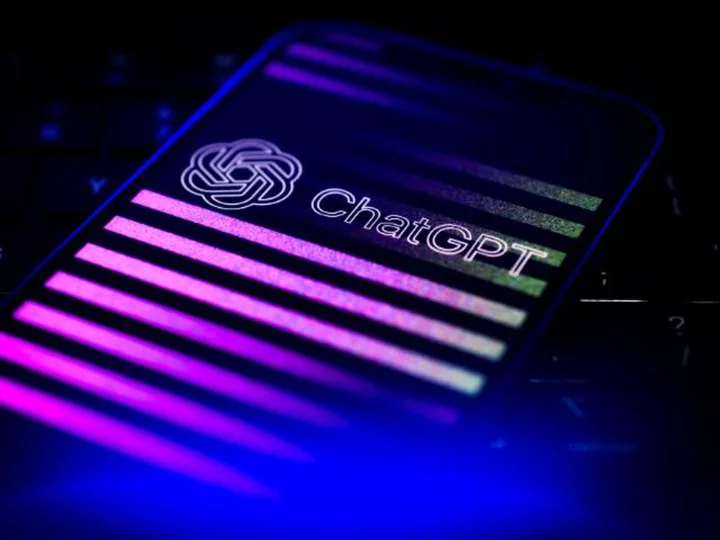
ChatGPT can now hear, see and speak as OpenAI gives the chatbot its most humanlike update
You can now speak aloud to ChatGPT and hear the artificial intelligence-powered chatbot talk back.
2023-09-26 02:59

New language discovered in ancient Bronze Age ruins
Ancient clay tablets unearthed from ancient ruins in Turkey by archaeologists have revealed a language lost to the passages of time. The new language was discovered in the ancient capital of the Hittite Empire at Hattusa (known as Boğazköy-Hattusha). The well-preserved tablets are among many incredible artworks found at the site - a UNESCO World Heritage Site. Over the past four decades, researchers have dusted off nearly 30,000 unique tablets - with most written in Hittite. New research, however, shows that some of the tablet haul shows that they are written in a language previously unknown to modern man. Of course, the meaning and words of this language have not been deciphered, but it appears from early inspection to branch off from languages used within the Hittite Empire - and is being referred to as Kalašma. Interestingly though, researchers from the Istanbul Department of the German Archaeological Institute have noted that the new language is found within a recitation in a 'cultic ritual text'. While that's usually the basis of a middling horror movie, we're certain that there's nothing to worry about - it stems from an ancient Hittite practice. Professor Daniel Schwemer explains that the discovery wasn't unexpected. "The Hittites were uniquely interested in recording rituals in foreign languages," he said. These ritual texts provide insight into little-known languages, and thanks to this discovery, one more has been added to the list. Sign up for our free Indy100 weekly newsletter Have your say in our news democracy. Click the upvote icon at the top of the page to help raise this article through the indy100 rankings.
2023-09-25 23:28

Scientists believe alien life could exist under 'impossible' conditions
Scientists have found that one of the key pillars of theory around how life works – that it depends on carbon – may not be the case on other planets. Here on Earth, life depends on organic compounds which are composed of carbon, and often involve other elements such as sulphur, oxygen, hydrogen, nitrogen and phosphorus. With organic compounds, life is partly sustained by chemical interactions called autocatalysis, which are self-sustaining. That means they produce molecules which then enable the reaction to happen again, and do not need any outside influence to keep going on. In the new study, scientists looked for autocatalysis in non-organic compounds. The theory is that if autocatalysis helps drive a process called abiogenesis – the origin process for life – then this origin process could also come from non-organic matter. Betül Kaçar, an astrobiologist, bacteriologist and evolutionary biologist at the University of Wisconsin-Madison, told news outlet Space.com: “It's important to explore these possibilities so that we have an idea of what all forms of life can look like, not just Earth life.” "One of the major reasons that origin-of-life researchers care about autocatalysis is because reproduction — a key feature of life — is an example of autocatalysis. “Life catalyses the formation of more life. One cell produces two cells, which can become four and so on. “As the number of cells multiply, the number and diversity of possible interactions multiplies accordingly.” The scientists searched in a huge trove of existing scientific documents for examples of autocatalysis, and found 270 different cycles of the reactions. Most of the 270 examples did not feature organic compounds, but rather elements which are rare in life forms such as mercury, or the radioactive metal thorium. “It was thought that these sorts of reactions are very rare,” Kaçar said in a statement. “We are showing that it's actually far from rare. You just need to look in the right place.” Now, it means scientists can test these cycles to get a better understanding of how autocatalysis can work. “The cycles presented here are an array of basic recipes that can be mixed and matched in ways that haven't been tried before on our planet,” said study author Zhen Peng, also an evolutionary biologist at the University of Wisconsin-Madison. “They might lead to the discovery of completely new examples of complex chemistry that work in conditions where carbon- or even silicon-based cycles are too either combusted or frozen out.” The scientists published their findings in the Journal of the American Chemical Society. Sign up to our free Indy100 weekly newsletter Have your say in our news democracy. Click the upvote icon at the top of the page to help raise this article through the indy100 rankings.
2023-09-25 23:16

OpenAI's ChatGPT will 'see, hear and speak' in major update
OpenAI's ChatGPT is getting a major update that will enable the viral chatbot to have voice conversations with
2023-09-25 22:49
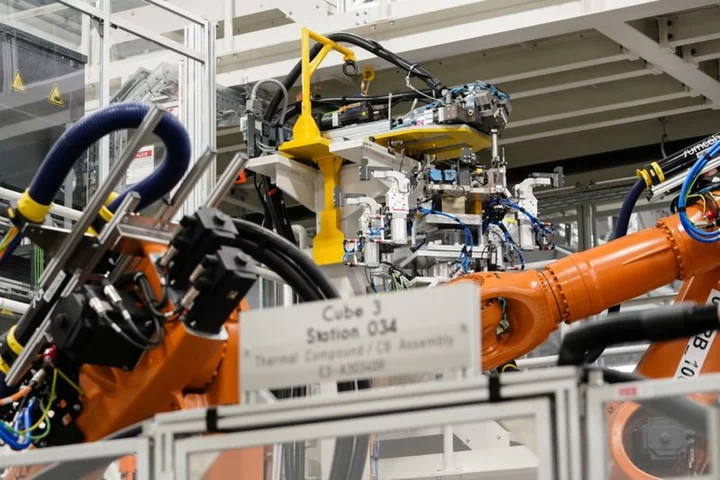
Mercedes applies for tax relief for projects at two U.S. plants
BERLIN German carmaker Mercedes-Benz has applied for tax breaks for potential projects at two of its U.S. plants
2023-09-25 22:17

Google Pixel 8 camera will include ‘creepy’ face-changing AI
Google’s next flagship smartphone will feature an AI-powered camera that can automatically alter the expression on someone’s face, according to a leaked video. The Google Pixel 8 and Google Pixel 8 Pro, which are set to be unveiled on 4 October, have already been partially revealed by the US tech firm, which has a habit of teasing its devices before the official release date. The latest promo video, posted by reliable leaker Kamila Wojciechowska, shows Pixel 8 users radically adjusting the appearance of photo subjects “with a tap”. “Reimagine an image with Magic Editor from Google Photos,” the video states. “It’ll make you wonder, can a phone be made of magic? Nope, it’s AI.” The video generated excitement among Pixel owners on social media, though some expressed concern about the camera’s abilities. “I am sold on the Pixel 8 series,” one user of X, formerly Twitter, posted. “The head swap kinda creepy though.” Similar to Apple with its latest iPhone 15 series, the tech giant is expected to place a major emphasis on the phone’s camera, with other leaks and rumours surrounding Google’s next Pixel devices suggesting both versions will feature a 50 megapixel main camera, together with a 10.5 megapixel front camera. The Pixel 8 Pro will feature an additional rear camera that offers telephoto capabilities and 5x optical zoom. Key specs have also been leaked, most notably the inclusion of a Tensor G3 chipset that will enable better processing power. The price for the standard version is expected to be £699 in the UK and $699 in the US, while the premium version will cost £999 in the UK and $899 in the US. Anyone who pre-orders the Pixel 8 Pro will also receive a free Pixel Watch 2. Google does not comment on leaks or rumours about unreleased products. Read More 10 ways AI will change the world – from curing cancer to wiping out humanity Pixel 6 pre-order: How to get Google’s new phone Google Pixel 6 release date revealed for ‘iPhone killer’ Google Pixel buds A-series review: AirPods for the Android crowd
2023-09-25 21:51
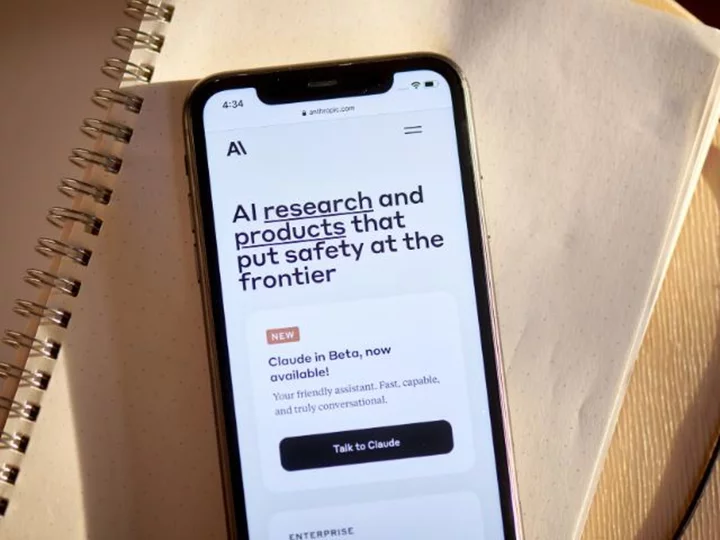
Amazon invests $4 billion in Anthropic AI in exchange for minority stake and further AWS integration
Amazon said on Monday that it's investing $4 billion into the artificial intelligence company Anthropic in exchange for partial ownership and Anthropic's greater use of Amazon Web Services (AWS), the e-commerce giant's cloud computing platform.
2023-09-25 21:28

Spotify makes AI voice clones of podcasters and uses them to speak other languages
Spotify has cloned the voices of its top podcasters and will use them to translate podcasts into other languages. Presenters including Lex Fridman and Kristen Bell now have podcasts on Spotify in which they interview their guests in Spanish – despite those conversations never actually having happened. Instead, Spotify took those podcasts and used a range of artificial intelligence technologies to create a match of their voice. They then translated the podcasts and used the voice clone to read them back out, giving an interview that is in another language but nonetheless sounds as if it was being spoken by the actual presenters. The company hopes that the technology means that people can listen to natural-sounding podcasts that were originally English – even if they do not speak the language. The technology is available for a limited number of podcasts in Spanish already, and Spotify will collect them in a devoted part of the app, and will also appear as a suggestion when someone starts listening to a relevant podcast. Soon it expects to use the technology for French and German, and will apply it to more podcasts. “By matching the creator’s own voice, Voice Translation gives listeners around the world the power to discover and be inspired by new podcasters in a more authentic way than ever before,” said Ziad Sultan, Spotify’s vice president of personalisation, in a statement. “We believe that a thoughtful approach to AI can help build deeper connections between listeners and creators, a key component of Spotify’s mission to unlock the potential of human creativity.” Spotify has already rolled out a number of other AI-powered features, including its AI DJ, which not only chooses songs but uses an artificial voice to introduce them. Like that AI DJ, the new translation technology is built on tools provided by OpenAI, the creators of ChatGPT. It said the current techologies are “just the beginning”. “The creator and audience feedback from the pilot will provide important insights for future expansion, iterations, and innovations,” Spotify said in its announcement, and it said it would “continue exploring new ways to overcome barriers to storytelling”. Read More Tesla robot shown practising yoga Meta plans to develop ‘sassy robot’ chatbot for young users, report says Nasa just delivered a piece of a distant asteroid to Earth
2023-09-25 20:50

'Where is the phone?' Huawei keeps quiet about Mate 60 Pro but takes aim at Tesla
Huawei has disappointed legions of fans — and US officials — eager to know more about its Mate 60 Pro smartphone, which has quickly become a symbol of the tech rivalry between the United States and China since it went on sale last month.
2023-09-25 20:46

Indonesia may issue regulation on social media e-commerce this week -president
JAKARTA (Reuters) -Indonesia may issue on Tuesday a regulation on the use of social media to sell goods in the
2023-09-25 20:28
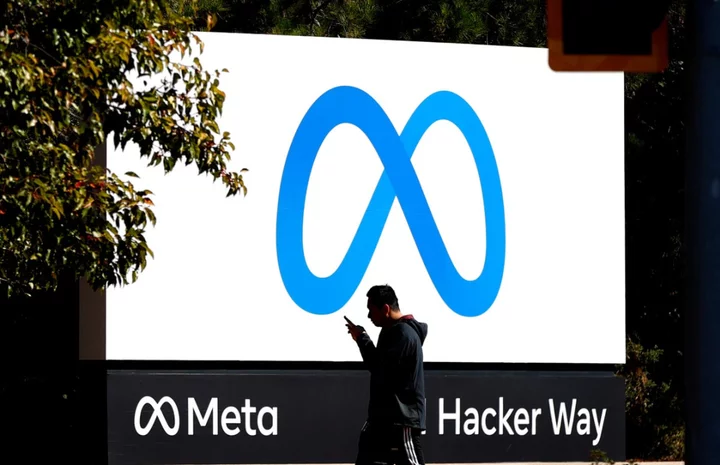
Meta plans to develop chatbot with ‘sassy robot’ persona for young users, report says
Facebook parent company Meta is reportedly planning to internally release an artificial intelligence chatbot called “Gen AI Personas” aimed at younger users. The chatbot, similar to OpenAI’s ChatGPT, is set to be launched during Meta’s Connect Event on Wednesday. The tech giant is testing the chatbot, which comes in multiple “personas” aimed to engage young users, including a “sassy robot” persona inspired by Bender from Futurama,according to The Wall Street Journal. Meta is reportedly developing “dozens” of these chatbots, including some to help with “coding and other tasks” and improve productivity as well as a tool to help celebrities make their own chatbots for their fans. The development of some of these chatbots – including one with the personality of former US president Abraham Lincoln – are part of Meta’s attempts to boost engagement on its social media platforms, reports previously suggested. The development of these new chatbots are signs of Meta’s growing interest in the market for large language models (LLM) similar to ChatGPT. It launched a new version of its open-source model in July called Llama 2 for commercial use, becoming the first major tech firm to release its AI chatbot. Meta chief Mark Zuckerberg said at the time of Llama 2’s release that it would “drive progress across the industry” while the firm’s chief AI scientist Yann LeCun said it will “change the landscape of the LLM market”. The tech firm’s development of “personas” also comes as tech industry leaders called for a balanced approach towards regulating AI at a historic gathering convened by US senate majority leader Chuck Schumer. At the meeting held earlier this month, Mr Zuckerberg said the two defining issues for AI are “safety and access.” He urged the US Congress should “engage with AI to support innovation and safeguards”. “New technology often brings new challenges, and it’s on companies to make sure we build and deploy products responsibly,” the Meta chief said. “This is an emerging technology, there are important equities to balance here, and the government is ultimately responsible for that,” he added. Read More Meta’s new end-to-end encryption ‘means thousands of criminals could go undetected’ Elon Musk warns of ‘civilisational risk’ posed by AI at historic gathering of tech giant chiefs WhatsApp update brings ‘channels’, allowing people to follow updates from celebrities and companies Facebook changes logo to ‘make F stand apart’ – but can you tell the difference? Elon Musk warns of ‘civilisational risk’ posed by AI at historic gathering Nasa just delivered a piece of a distant asteroid to Earth
2023-09-25 16:57
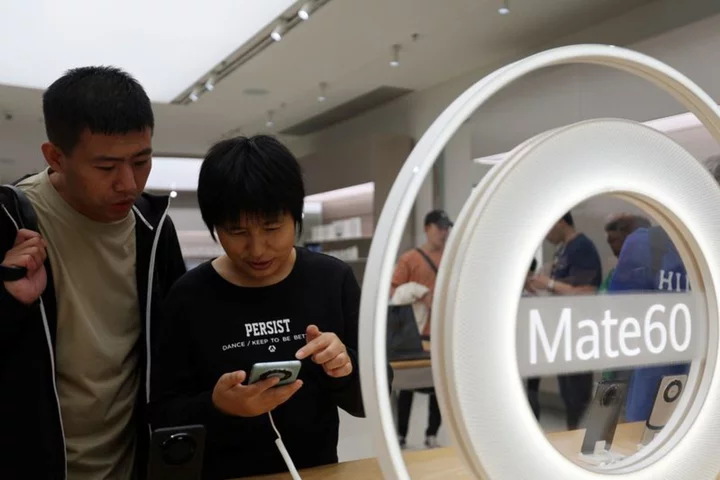
Huawei starts product launch event by thanking China for its support
By Yelin Mo and Brenda Goh BEIJING/SHANGHAI (Reuters) -Huawei Technologies kicked off a product launch event on Monday by thanking
2023-09-25 16:55
